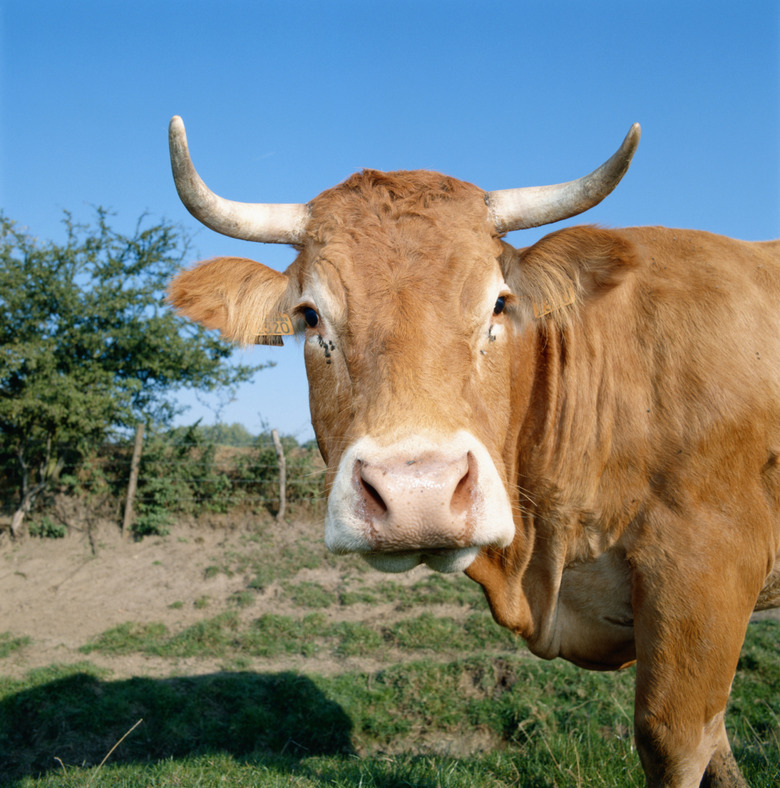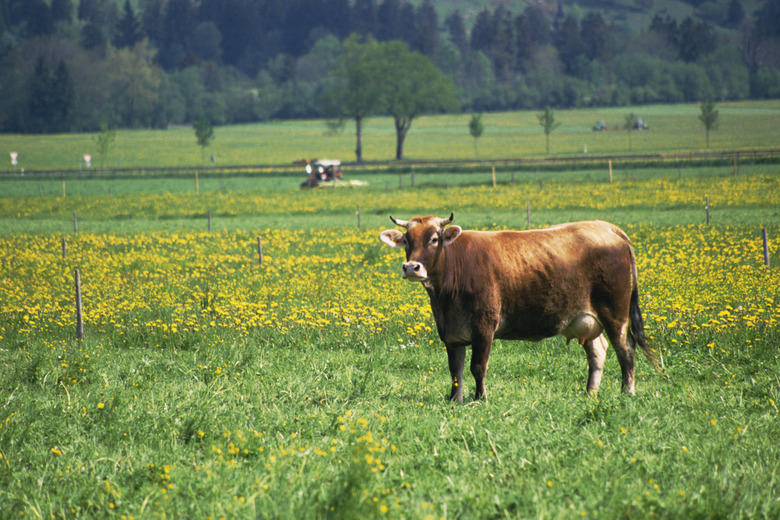How Is Organic Beef Raised?
For more than a decade, demand for organic beef has increased. More people are interested in eating healthier food and are willing to pay more for it. To receive USDA organic certification, cattle ranchers must follow a stringent set of guidelines that eliminate synthetic chemicals, hormones and antibiotics in cattle feed and care. These regulations ensure that beef is free of chemicals and that consumers don't pay premium prices for beef that does not meet the guidelines.
Animal Feed
Animal Feed
Many consumers are willing to pay higher prices to make chemical-free beef a part of a healthy diet. Keeping residual chemicals and growth hormones out of cattle keeps them out of humans. That's why FDA guidelines require that certified organic beef cattle graze on pastures that have been chemical free for at least 36 months and why supplemental crops used as cattle feed must also be certified organic.
Animal Care
Animal Care
Some ranchers–and consumers–believe that eliminating stress for cattle leads to healthier animals and better-tasting meat. Cattle raised for organic beef production must have pasture for grazing; this ensures they are treated humanely and given room to move.
The USDA requires diligent record keeping to assure consumers that products with "organic beef" labels are chemical- and disease-free. Ranchers must maintain an individual record of each animal raised as organic beef. This document identifies the animal's parents, its birth date, major events in its life such as weaning and vaccinations and any medicine it receives. These documents help ranchers react quickly if an illness enters the herd.
Living Conditions
Living Conditions
Ranchers hoping to certify their beef as organic must raise cattle in a humane and ethical manner. Cattle must be housed in enclosures that allow them to move freely and have access to the outdoors when weather permits. According to the Midwest Organic and Sustainable Education Service, any bedding used for cattle must be certified organic if there is a chance the animals will eat it. Sawdust treated with any kind of chemical is not an acceptable bedding material. Treated wood of any kind, including fencing material, is banned from areas where these cattle eat. This requirement ensures that the animals do not eat chemicals that ranchers are unaware of.
Approved Chemicals
Approved Chemicals
Some synthetic and natural substances such as aspirin and iodine are approved for the care of organic beef cattle. The National Organic Program, which is run by the USDA, keeps a current list of all accepted substances. These substances are safe for human use and have been approved to make sure animals don't suffer to achieve an organic certification.
It's illegal to withhold medication from an animal if that medication is necessary to keep the animal alive. When organic beef cattle are sick and require medication, they must be treated appropriately and later sold as non-organic beef.
Cite This Article
MLA
Cairoli, Sarah. "How Is Organic Beef Raised?" sciencing.com, https://www.sciencing.com/organic-beef-raised-2452/. 24 April 2017.
APA
Cairoli, Sarah. (2017, April 24). How Is Organic Beef Raised?. sciencing.com. Retrieved from https://www.sciencing.com/organic-beef-raised-2452/
Chicago
Cairoli, Sarah. How Is Organic Beef Raised? last modified March 24, 2022. https://www.sciencing.com/organic-beef-raised-2452/

